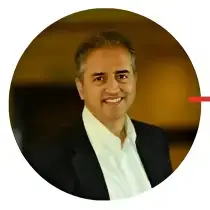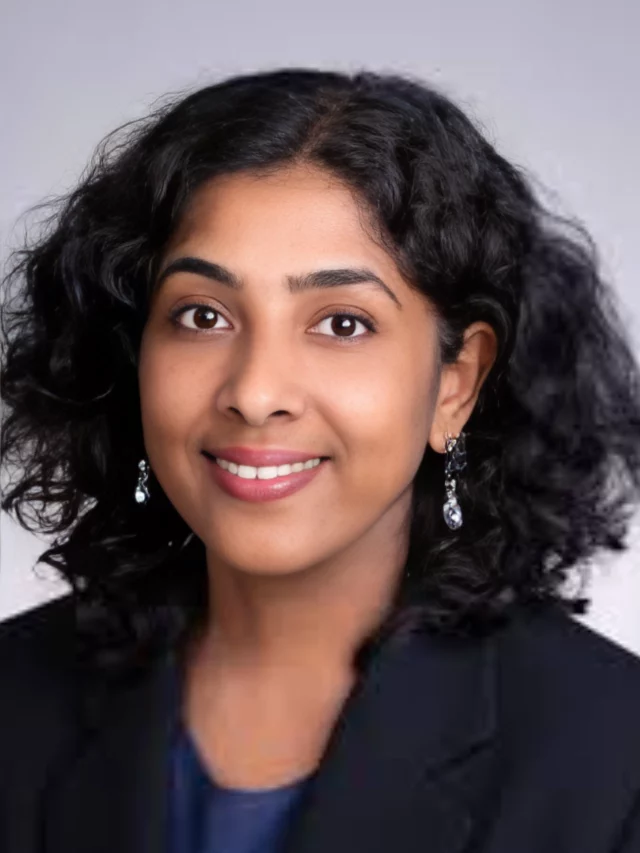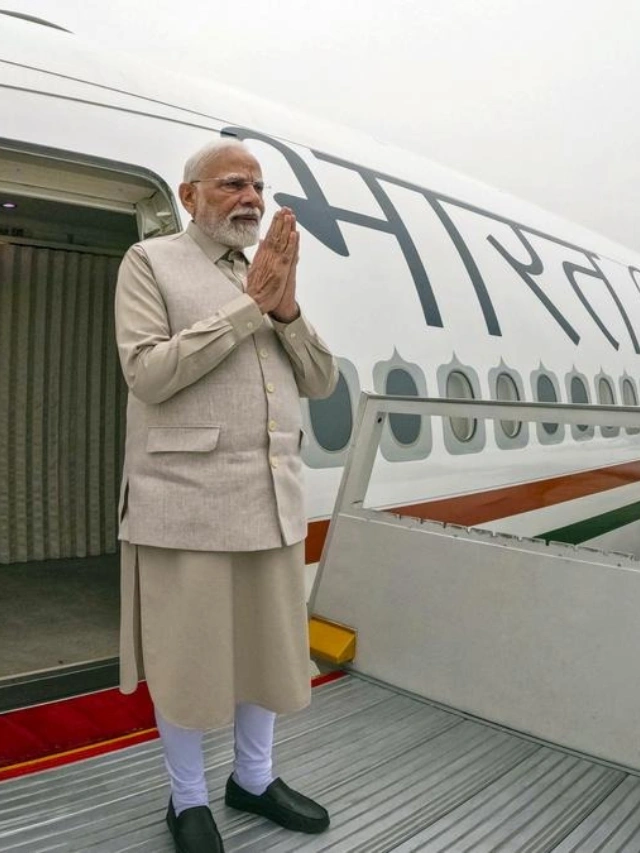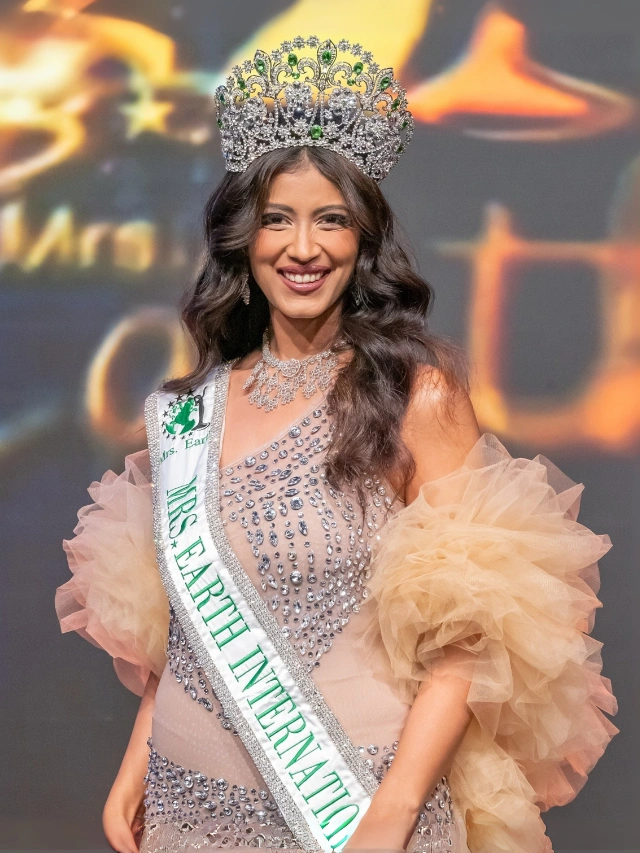Dr. Devi Prasad Shetty
Dr. Devi Prasad Shetty has completed over 100,000 heart operations. The Wall Street Journal recognized him as the “Henry Ford of heart surgery” in 2009. He founded Narayana Hrudayalaya (NH) in 2001 and changed healthcare delivery in India through his network of 47 healthcare facilities nationwide. His hospitals perform 30-35 heart surgeries each day, while typical U.S. hospitals only do one or two.
Dr. Shetty’s hospital network was built with affordability in mind. His facilities now handle about 12% of all heart surgeries in India. Children with heart disease make up 40% of these procedures. His hospitals provide coronary bypass surgery for just 95,000 rupees ($1,583), which is nowhere near the $106,385 charged at prestigious institutions like Ohio’s Cleveland Clinic. He wants to cut these costs even further to $800 within a decade, making life-saving procedures available to millions more patients.
CEO’s | Actors | Politicians | Sports Stars
Forbes estimates Dr. Shetty’s net worth at USD 1.4 billion, yet his focus remains on humanitarian healthcare. He launched the Yeshasvini Micro-Health Insurance Scheme that now protects 4 million people. His telemedicine program has helped over 53,000 patients without any cost. He became the first surgeon in India to perform heart surgeries on newborn babies. His innovative approaches to healthcare delivery continue to change lives in developing countries throughout Asia and Africa.

Early Life and Education of Dr. Devi Shetty
Childhood in Kinnigoli and family background
The Village Beginnings: Dr. Devi Prasad Shetty’s story began in Kinnigoli, a small village in Karnataka’s Dakshina Kannada district, where he was born on May 8, 1953. He was the eighth of nine children, and his large family taught him valuable lessons about standing out and speaking up. The sibling dynamics helped shape his resilient character.
The Family: Dynamic Life in the Shetty household taught him independence and self-reliance. His mother’s approach was unique – she never stepped into children’s arguments. Instead, she encouraged young Devi to fight his own battles. This early lesson in self-advocacy became the foundation for his later challenges to healthcare norms. He faced occasional bullying at home and responded by learning martial arts for 8-9 years.
The Academic Journey: Young Devi’s performance as a student varied greatly. He admits he wasn’t consistently outstanding – his grades would swing between excellent and average. These ups and downs didn’t worry him much, suggesting he already had his sights set on bigger goals rather than just grades.
Inspiration from Christiaan Barnard
The Defining Moment: A fifth-grade classroom announcement changed Dr. Shetty’s life forever. His teacher shared news about Christiaan Barnard, the South African surgeon who completed the world’s first heart transplant. This news lit a spark in the young boy’s mind and gave him a clear vision.
The Childhood Dream: Despite his varied academic performance, Dr. Shetty’s path was clear. He recalls: “I always knew I wanted to be a heart surgeon. I was in fifth standard, when the teacher told us about Christiaan Barnard…how he did the first heart transplant in Cape Town, South Africa. I was so fascinated. I didn’t even know you had to become a doctor first, I was so naïve, but my heart was set”. One classroom moment shaped his entire life’s direction.
The Mathematical Challenge: Math proved to be his biggest hurdle. Young Devi called it “a recurring nightmare”. His drawing teacher, Achutha Acharya, saw his potential and started tutoring him in mathematics. This extra help led to success in a district-level exam, boosting Dr. Shetty’s confidence.
Medical education in Mangalore and London
The Educational Foundation: Dr. Shetty started his journey at St. Aloysius School in Mangalore. He earned his MBBS from Kasturba Medical College, Mangalore in 1979. The same institution saw him complete his post-graduate work in General Surgery by 1982.
The International Training: Limited heart surgery training options in India led Dr. Shetty to England. He joined Guy’s Hospital’s Cardiothoracic Unit in London in 1983, working there until 1989. His training included time at Brompton Hospital under the National Health Service UK and the West Midlands Cardio Thoracic Rotation Program.
The Professional Credential: Dr. Shetty earned his Fellow of Royal College of Surgeons (FRCS) in England. This prestigious qualification validated his surgical expertise globally and prepared him for his groundbreaking work in India.
Dr Devi Prasad Shetty age and early ambitions
The Visionary Focus: Dr. Shetty’s early career choices revealed his determination. His colleagues tried to discourage him from pediatric surgery, warning about poor outcomes and limited money. Yet he stayed firm in his mission. His words tell the story: “The idea was never to make money but to save lives”.
The Pioneering Achievement: 1992 marked a milestone when Dr. Shetty performed open heart surgery on a nine-day-old baby. This breakthrough procedure launched pediatric cardiovascular surgery in India, achieving the dream that started with that fifth-grade announcement about Christiaan Barnard.
The Life Journey: Dr. Devi Prasad Shetty turns 71 in May 2025. His four-decade medical career has transformed cardiac surgery and healthcare access in India – all tracing back to that inspiring moment in his childhood classroom.
Career Milestones and Surgical Achievements
First neonatal heart surgery in India
Groundbreaking Achievement: Dr. Devi Prasad Shetty wrote his name in medical history books in 1992. He successfully performed India’s first neonatal heart surgery on a 21-day-old baby named Ronnie. This groundbreaking procedure changed Indian pediatric cardiac care forever and established Dr. Shetty as a pioneer. The surgery proved that doctors could perform complex cardiac procedures on newborns in India, which meant families no longer needed to go abroad for treatment.
Surgical Innovation: Dr. Shetty’s contributions went far beyond this landmark surgery. He brought new surgical techniques that changed cardiac care in India. He led the way in using microchip cameras for minimally invasive surgeries to close heart holes. He also developed specialized operations for complex heart conditions. These included pulmonary endarterectomy, redo heart surgeries, valve repairs in newborn babies, and aortic aneurysm surgeries.
Volume and Expertise: Dr. Shetty has performed more than 100,000 heart operations throughout his distinguished career. Children with heart disease made up 40% of these procedures. This remarkable number of surgeries has made him one of India’s leading cardiac surgeons.
Personal physician to Mother Teresa
Sacred Trust: Dr. Shetty saved Mother Teresa’s life by performing angioplasty after her heart attack in 1996. He then became her personal physician for the last five years of her life. Their relationship grew beyond typical doctor-patient bonds. Mother Teresa often joined him during hospital rounds to watch him work with young patients.
Profound Influence: Mother Teresa’s compassion deeply shaped Dr. Shetty’s healthcare philosophy. She watched him repair a newborn’s heart defect and gave him what he calls “the best job description of a heart surgeon” he had ever heard: “When babies are born with heart defects, God decides that something is wrong and that someone needs to cure it. He dispatches someone such as you to carry out this task”.
Humanitarian Vision: Treating Mother Teresa strengthened Dr. Shetty’s commitment to make quality healthcare available to everyone. Her selfless service to humanity guided his medical practice and hospital management approach. This experience led him to create affordable healthcare models.
Dr Devi Prasad Shetty cardiologist journey
Homecoming: Dr. Shetty finished his cardiothoracic training in the United Kingdom and returned to India in 1989. He started working at B.M. Birla Hospital in Kolkata. He described himself as “perhaps the second heart surgeon in that part of the world”. This highlighted how few specialized cardiac care doctors India had during that time.
Urgent Mission: Dr. Shetty saw a huge problem in India’s cardiac care. Over two million people needed heart surgeries each year in the 1980s and 90s. Yet India could only handle 150,000 operations annually. He called this situation “a tragedy… needless death” that mostly affected young breadwinners who supported entire families.
Expanding Expertise: Dr. Shetty’s 40-year career has made him an expert in many cardiac procedures. These include coronary angiograms, angioplasty, pacemaker implantation, coronary artery bypass grafting (CABG), valve replacements, and open heart surgeries. His complete skill set helps him treat all types of heart conditions in both adults and children.
Dr Devi Prasad Shetty hospital list and affiliations
Founding Vision: Dr. Shetty opened Narayana Hrudayalaya (NH) in 2001. This multi-specialty hospital sits in Bommasandra near Bangalore. NH brought his revolutionary idea of affordable, high-quality healthcare through economies of scale. He wanted this facility to perform sixty major heart surgeries every day.
Expanding Network: Narayana Hrudayalaya grew into Narayana Health over twenty years. The network now has more than 47 healthcare centers across India. It runs 32 hospitals and handles about 12% of all heart surgeries in India. Key facilities include:
- Rabindranath Tagore International Institute of Cardiac Sciences (RTIICS) in Kolkata
- Narayana Institute of Cardiac Sciences in Bangalore
- Multiple specialized centers in different Indian states
Global Ambitions: Dr. Shetty’s healthcare vision reached beyond India. He worked with Ascension Health in 2012 to build a healthcare city in the Cayman Islands. The plan included space for 2,000 beds. He also made agreements with Indian state governments. These included plans for a 5,000-bed specialty hospital near Bangalore International Airport in Karnataka and another 5,000-bed hospital in Ahmedabad, Gujarat.
Building Narayana Health: An Expandable Healthcare Model
Founding Narayana Hrudayalaya in Bangalore
The Visionary Beginning started when Dr. Devi Prasad Shetty built Narayana Hrudayalaya in 2001. He chose Bommasandra on the outskirts of Bangalore for this multi-specialty hospital. The facility has specialized departments like cardiology, neurosurgery, pediatric surgery, hematology, transplant services, and nephrology. The heart hospital grew by a lot and became one of the world’s largest with 1,000 beds. The team performs more than 30 major heart surgeries each day.
The Economic Revolution shaped Dr. Shetty’s healthcare model. He strongly believed hospitals could cut healthcare costs by 50% in 5-10 years by using economies of scale. This thinking helped develop Narayana Hrudayalaya as a model for affordable yet high-quality healthcare across India.
Expanding to 47+ hospitals across India
The Nationwide Growth turned the single hospital into Narayana Health. The network now runs 47 healthcare facilities with 6,121 operational beds across India. They have 19 owned/operated facilities (5,462 beds), two managed hospitals (283 beds), four heart centers (266 beds), and 21 primary healthcare facilities.
The Regional Stronghold: Dr. Shetty built covers many locations. His presence is especially strong in southern Karnataka and eastern India. The organization keeps growing. They recently laid the foundation stone for their fifth hospital in East India. This new 10-lakh-square-foot facility will add 1,100 beds, bringing Narayana Health’s total capacity to 7,350 beds.
Global ventures including Cayman Islands
The International Milestone arrived in February 2014. Dr. Shetty opened Health City Cayman Islands (HCCI), his first project outside India. This 104-bed tertiary-care hospital offers cardiac surgery, cardiology, and orthopedic services. HCCI partners with Ascension Health Alliance, one of America’s largest not-for-profit healthcare chains.
The Cost Innovation showed impressive results abroad. The team built HCCI in just one year for about ₹5,906.63 million. A similar 100-bed hospital in the US costs over ₹25,314.14 million. The complete health-city plan will have 2,000 beds, a medical university, and an assisted-living center over ten years.
Devi Shetty organizations founded
The Healthcare Ecosystem: Dr. Shetty created includes several innovative organizations. He founded Narayana Health (renamed from Narayana Hrudayalaya in 2013) and the Rabindranath Tagore International Institute of Cardiac Sciences (RTIICS) in Kolkata. His plans aim to create specialized centers across India. He signed agreements with Karnataka Government to build a 5,000-bed hospital near Bangalore International Airport and with Gujarat for another 5,000-bed facility in Ahmedabad.
Affordable Healthcare Innovations and Impact
Yeshasvini micro-health insurance scheme
Micro-Insurance is one of Dr. Devi Prasad Shetty’s most influential breakthroughs. The 20-year-old Yeshasvini scheme, created with the Karnataka government, started with a monthly charge of Rs 5 per person which later went up to Rs 10. The program grew faster than expected, with 1.6 million farmers joining in the first year and 2.2 million in the second year. More than 4 million poor farmers now have coverage through this initiative.
The program showed amazing results by helping complete about 1.2 million surgeries, including 131,000 heart operations. This proved that small contributions from many people can create lasting healthcare funding. The scheme covered expensive but rare medical events, and each person could claim up to Rs 200,000 yearly.
Use of economies of scale in surgery
Surgical Efficiency defines how Narayana Health hospitals work. Most U.S. hospitals do 1-2 heart surgeries each day, but Narayana surgeons perform 25-35 major heart operations daily. Their surgeons complete 400-600 procedures yearly, which is a big deal as it means that they do more than their American counterparts who typically perform 100-200 operations.
This high-volume approach leads to Cost Reduction. A coronary artery bypass graft at Narayana Health costs about Rs 95,000 (US$1,335), while the same procedure costs US$89,768 in the United States. The quality remains excellent with mortality rates (1.27%) and infection rates (1%) matching American standards.
Digital health platforms and telemedicine
Technology Investment is the life-blood of Dr. Shetty’s healthcare vision. Narayana Health’s digital platform “Athma” now handles 20 million daily transactions and stores over 10 million patient health records after 20 years of development. The Rs 500 crore investment reshaped patient care completely.
The Telemedicine Network now connects 800 centers worldwide and serves over 53,000 patients remotely. Dr. Shetty believes that “95% of illnesses would be treated with telemedicine, with patients at home and doctors anywhere”.
Training family members for post-op care
Family Support brings another cost-saving breakthrough. Narayana Health created a four-hour program to teach patients’ family members to provide nursing care. Training begins three days before discharge to ensure proper post-surgical care and reduce staff needs by a lot.
Reducing surgery costs through frugal engineering
Smart Design runs through Narayana’s facilities. The hospitals use natural cross-ventilation instead of expensive air conditioning. The organization also buys 80% of inventory centrally, which cuts costs by 15-40%.
They manage Equipment through a pay-per-use model for expensive diagnostic machines rather than buying them outright. Strict sterilization allows them to reuse certain medical devices that Western hospitals typically throw away after one use. These breakthroughs should bring coronary bypass costs down to about Rs 67,504 in the next decade.
Recognition, Awards, and Public Roles
Awards won by Devi Shetty including Padma Bhushan
National Recognition has shaped Dr. Devi Prasad Shetty’s remarkable career through prestigious honors. The Indian government awarded him the Padma Bhushan, the country’s third-highest civilian award in 2012, recognizing his healthcare contributions. He had earlier received the Padma Shri award in 2004. His achievements include the Karnataka Ratna award (2001), Ernst & Young Entrepreneur of the Year Award (2003), and the Schwab Social Entrepreneur of the Year Award (2005).
International Acclaim came with The Economist Innovation Award for Business Process in 2011. He also received the Financial Times Arcelor Mittal ‘Boldness in Business’ Award and the Nikkei Asia Prize for Economic and Business Innovation. Several prestigious institutions honored him with honorary doctorates, including the University of Minnesota (2011), IIT Madras (2014), and IIT Kanpur.
Chairperson of IIM Bangalore Board of Governors
Leadership Role at the Indian Institute of Management Bangalore started with Dr. Shetty’s appointment as Chairperson of the Board of Governors in 2018. The institute renewed his position for a second four-year term, showing their trust in his leadership abilities. Dr. Shetty said, “It is a great privilege and an honor to serve as Chairperson of the Board of Indian Institute of Management Bangalore”.
Educational Vision shapes his work with academic institutions. Beyond IIM Bangalore, Dr. Shetty leads the Healthcare Sector Skill Council and represents the President of India on the Board of Governors of Indira Gandhi National Open University.
Role in COVID-19 task force and public health
Pandemic Response saw Dr. Shetty lead Karnataka’s COVID-19 task force in 2021. He guided the state’s preparation for future pandemic waves using his healthcare expertise. The Wall Street Journal recognized his innovative methods by calling him the “Henry Ford of heart surgery”.
Healthcare Policy reaches beyond his hospitals. Dr. Shetty serves on the Board of Governors of the Medical Council of India. He also helps shape national healthcare frameworks through his role in the Health Insurance Consultative Committee of IRDAI.
Dr Devi Prasad Shetty net worth in rupees
Financial Success pairs with Dr. Shetty’s humanitarian work. His estimated net worth stands at Rs 9,800 crore (INR 98 billion), making him one of India’s wealthiest doctors. He and his family maintain a 75% stake in Narayana Hrudayalaya, keeping control of his healthcare vision.
Giving Back
Continuous Innovation defines Dr. Shetty’s approach to healthcare access. His latest major project aims to help 2,000 rural Indian children enter medical colleges each year, addressing the shortage of healthcare professionals in underserved regions.
Key Takeaways
Lasting Legacy of Dr. Devi Prasad Shetty goes beyond surgical excellence to innovative healthcare solutions. Time magazine highlighted his influence by naming him among the ’50 most influential people in healthcare’. His groundbreaking work shows that quality healthcare can be both available and affordable with vision and compassion.
FAQ
What is Devi Shetty's educational background?
Dr. Devi Prasad Shetty was born on May 8, 1953, in Kinnigoli, Karnataka, India. He pursued his medical education at Kasturba Medical College, Mangalore, earning his MBBS and MS degrees. To further specialize in cardiac surgery, Dr. Shetty trained under the National Health Service in the United Kingdom from 1983 to 1989, working at prestigious institutions like Brompton Hospital and Guy’s Hospital in London. This extensive training laid the foundation for his illustrious career as a cardiac surgeon.
Which organizations has Devi Shetty founded?
Dr. Devi Shetty is the founder of Narayana Health, formerly known as Narayana Hrudayalaya, established in 2000. This healthcare network encompasses 47 facilities, including a hospital in the Cayman Islands. Narayana Health is renowned for providing affordable and high-quality healthcare services across India. Dr. Shetty also played a pivotal role in designing Karnataka’s Yeshasvini micro-insurance scheme, aimed at offering low-cost health insurance to rural farmers.
What is Devi Shetty's net worth?
As of February 2025, Dr. Devi Shetty’s net worth is estimated at $2 billion, positioning him among India’s wealthiest medical professionals. His wealth primarily stems from his role as the chairman and founder of Narayana Health, a prominent hospital chain headquartered in Bangalore. Under his leadership, Narayana Health has expanded to 47 healthcare facilities, including an international hospital in the Cayman Islands.
Who is Devi Shetty's wife?
Dr. Devi Shetty is married to Shakuntala Shetty. While specific details about their marriage and Shakuntala’s personal background are not widely publicized, the couple has four children. Dr. Shetty’s family has largely maintained a private life, away from the public eye, focusing on supporting his medical and philanthropic endeavors.
What is Devi Shetty's age?
Born on May 8, 1953, Dr. Devi Shetty is 71 years old as of February 2025. With a medical career spanning over four decades, he has made significant contributions to cardiac surgery and healthcare accessibility in India. His innovative approaches and dedication have earned him numerous accolades, including the Padma Shri in 2004 and the Padma Bhushan in 2012.
What is Narayana Hrudayalaya?
Narayana Hrudayalaya, now known as Narayana Health, is a multi-specialty hospital chain founded by Dr. Devi Shetty in 2000. Headquartered in Bangalore, India, Narayana Health operates 47 healthcare facilities, including a hospital in the Cayman Islands. The network is acclaimed for delivering affordable, high-quality medical care across various specialties, with a notable emphasis on cardiac surgery. Dr. Shetty’s vision has been to make advanced healthcare accessible to all segments of society.
Who is Devi Shetty's son?
Dr. Devi Shetty and his wife, Shakuntala, have four children. Their son, Dr. Varun Shetty, has followed in his father’s footsteps, pursuing a career in medicine. Specific details about Dr. Varun Shetty’s medical specialization and professional endeavors are not widely publicized, as the family maintains a private profile regarding their personal lives.
What hospitals has Dr. Devi Prasad Shetty established?
Dr. Devi Prasad Shetty has been instrumental in establishing several hospitals under the Narayana Health network. Some notable facilities include:
• Narayana Institute of Cardiac Sciences, Bangalore: A flagship hospital specializing in cardiac care.
• Rabindranath Tagore International Institute of Cardiac Sciences, Kolkata: A multi-specialty hospital with a focus on cardiac sciences.
• Health City Cayman Islands: An international hospital offering a range of medical services.





Respected, Sir. Please take my regards. I will remain you for ever. My only one daughter Miss. Indrani Banerjee, she was 9 yrs age, 3 timei open heart surgery done, but she passes away. Although I will remain you for ever. Because we have come from very ordinary family. You will help me. Regards. Thanks Sir..🙏🙏🙏🙏